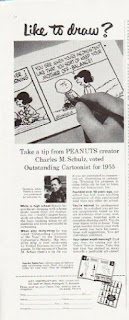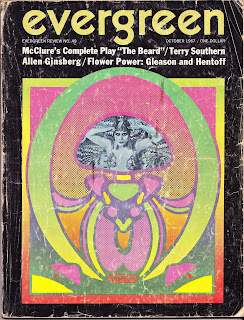The day after Ronald was admitted to the hospital, I left
with Sonja Kebbe for a visit to Philadelphia. While there I signed up to attend the I.B.M.
Automation Division of Florence Utt Schools, Inc. The course was designed to
teach me to be a TAB Operator and Programmer. I didn’t know it when I handed them my first tuition check, but I was putting my toe in the first wave
of the computer industry.
It was only a six-week course. My classroom was on the fourth
floor of a building on East Market Street in Philadelphia, almost next to City Hall, in the shadow of William Penn's hat, as they say. We were directly across the street from John Wanamaker’s Department Store. I had been to the city several times growing up, but always with a family member taking me. This was my first excursion alone. (By the fall, when Richard Ray Miller asked me to accompany him, I was a seasoned veteran, which is why he called me in the first place.) Every weekday morning I caught an early
Reading Train at the Pottstown Station (pictured right). My class ran from 9:00
to noon. My train rides started at 7:00 and ended around 2:00.
The first day everybody arrived and waited in a hallway for
the instructor. There was a clump of fellows next to me talking in somewhat
hushed tones about some Western film actor. One of them was saying, “Yes, he
is.”
“Yeah,” said another. “He walks like one, too.”
“That’s right,” said the first. “They only shoot him walking
from the waist up so nobody notices.”
I
figured out eventually from their conversation that they were talking about
Randolph Scott, but I had seen a number of Randolph Scott Westerns, probably
only second to John Wayne westerns and was pretty sure I saw him walking, legs
and all. I didn’t know what they were talking about, but they had a mocking
tone. (Photo left is Randolph Scott and Cary Grant.)
 The
Instructor showed up and led us into the classroom. It was full of I.B.M.
machines. The devices circled
around several desks with 024 and 026 Keypunches on one end and continuing in a
clockwise
The
Instructor showed up and led us into the classroom. It was full of I.B.M.
machines. The devices circled
around several desks with 024 and 026 Keypunches on one end and continuing in a
clockwise  There was a young man sitting in the desk next to me. He was
my height and build, had lighter curlier hair and looked to be my age. I
introduced myself at the first break. His name was Tom Newman from Clementon, New Jersey
and he was my age. He too wanted to
be a cartoonist. He was also studying art through a correspondence school. He
was with the Famous Artists School, the biggest rival to Art Instruction, Inc.
My school was represented by Charles Schulz, his school by Norman Rockwell. Tom and I
became instant friends.
There was a young man sitting in the desk next to me. He was
my height and build, had lighter curlier hair and looked to be my age. I
introduced myself at the first break. His name was Tom Newman from Clementon, New Jersey
and he was my age. He too wanted to
be a cartoonist. He was also studying art through a correspondence school. He
was with the Famous Artists School, the biggest rival to Art Instruction, Inc.
My school was represented by Charles Schulz, his school by Norman Rockwell. Tom and I
became instant friends. How far along he was
in his lessons I don’t know. In my own opinion Tom was probably a better artist
than I was. He had a flow of line that was smoother than my own. I was
How far along he was
in his lessons I don’t know. In my own opinion Tom was probably a better artist
than I was. He had a flow of line that was smoother than my own. I was  I found the IBM classes fascinating. The first lessons were on
the keypunches, which were
I found the IBM classes fascinating. The first lessons were on
the keypunches, which were
All the other
machines in the room ere for reading the cards.
Feeding the cards over a metal surface
beneath an electric circuit did this. Punching a hole in a column allowed the
circuit to be completed and the machine read the character. Just like computers
to come, everything was binary. It was either on or off. There were
Interpreters, Collators, Accounting machines, Sorters and the Calculator to
learn. Each machine did a separate function of a process. All read cards, but
without a program could do nothing with the information.
 You
preformed programming on control panels using plug-in wires. First, the
instructor gave
You
preformed programming on control panels using plug-in wires. First, the
instructor gave
Both Tom and I graduated ranking first in the class. We each
scored 99% for the course. I don’t know how he lost that one point. I had a
point deducted because I didn’t write my name on the back of one programming
schematic.
 During our weeks of training we sometimes visited each other.
It was a lot more fun visiting
During our weeks of training we sometimes visited each other.
It was a lot more fun visiting
The first Friday I was going to his place we went to John
Wanamaker’s right after class. He was buying something for his mom, if I
remember right. Since he lived in Jersey we had to catch a Train. It went over
the Benjamin Franklin Bridge to cross the Delaware River. It wasn’t called
PATCO yet. The tracks had not extended further than 8th Street the
year before. Now the subways and Jersey train all had stations on the basement
level of Wanamaker’s.
We were up on the Mezzanine and suddenly found ourselves running
late to catch our train. We went dashing through the store looking for a
stairway down to those stations, but we were lost. We ran through some doors we
thought were an exit, but they weren’t. We ran right into the Ladies’ Restroom.
It was huge and full of women doing all the things women do in powder rooms. We
rushed in and every woman screamed. We just kept running right out doors on the
other side of the room. We found the stairs we wanted and escaped out of town.
Tom
and I got our diploma from Florence Utt Schools on August 28. I traveled over
to Clementon with him afterward and stayed the night. His mother dropped me off
at the Pottstown train station on their way to Hershey the next day. He then
rode off into the west and that was the last I ever saw him. My mother and
grandmother picked me in Pottstown and he and I returned back to our hometowns
and our own lives and soon lost contact. I sometimes wonder how he made out
with his I.B.M. training. I especially wonder about his art and did he ever
become a cartoonist? By the way, the last time I saw a IBM TAB Control Board was on display at the Smithsonian Institute. My Job of the Future is the job of the past.
 Tom and I both being into art we couldn't resist trying out
Tom and I both being into art we couldn't resist trying out
a couple sketches using all this expensive IBM Equipment. So during some break time or something we managed to sneak through a couple rather simple TAB Operation illustrations. This is a long way from what can be done on simple devices today. Oh, the one on the right is supposed to be George Washington, just in case anyone mistook it for William Shakespeare. Also, I lot more effort went into creating these the it looks.
 Tom and I both being into art we couldn't resist trying out
Tom and I both being into art we couldn't resist trying outa couple sketches using all this expensive IBM Equipment. So during some break time or something we managed to sneak through a couple rather simple TAB Operation illustrations. This is a long way from what can be done on simple devices today. Oh, the one on the right is supposed to be George Washington, just in case anyone mistook it for William Shakespeare. Also, I lot more effort went into creating these the it looks.
 I myself dropped out
of Art Instruction soon after Florence Utt. My marks had dropped from A during
my first year to a B level. My last two assignments earned me a C. I wasn’t
practicing anymore. My interest was waning. I was simply pulling the assignments
out as they arrived in the mail, doing them without practice and sending them
back. I wanted to be a cartoonist, not someone drawing vases and
I myself dropped out
of Art Instruction soon after Florence Utt. My marks had dropped from A during
my first year to a B level. My last two assignments earned me a C. I wasn’t
practicing anymore. My interest was waning. I was simply pulling the assignments
out as they arrived in the mail, doing them without practice and sending them
back. I wanted to be a cartoonist, not someone drawing vases and
During the time I was going to Florence Utt Ronald sent me a
story he wrote. He titled it, “The Potato Chip King”. It was really an extended
dirty joke, a rather disgusting one at that. I won’t reiterate it here. Ron was
to co-write a couple stories with me over the years. One was a Western parody, “Git ‘Em at the
Pass” and the other a psychological mystery called “The Wreckage”. Actually,
Ronald suggested a story line for that third one and I wrote it into a full
tale.
I send one of our stories to a magazine once. It may have
been a revamped version of “The Potato Chip King”. I received a handwritten
rejection letter from the editor. He said our story had insulted the
intelligence of every one living in the Southern United States. Gee, sorry, it
was just a joke.
His routine surgery, however, was proving to be anything but
a joke.
























